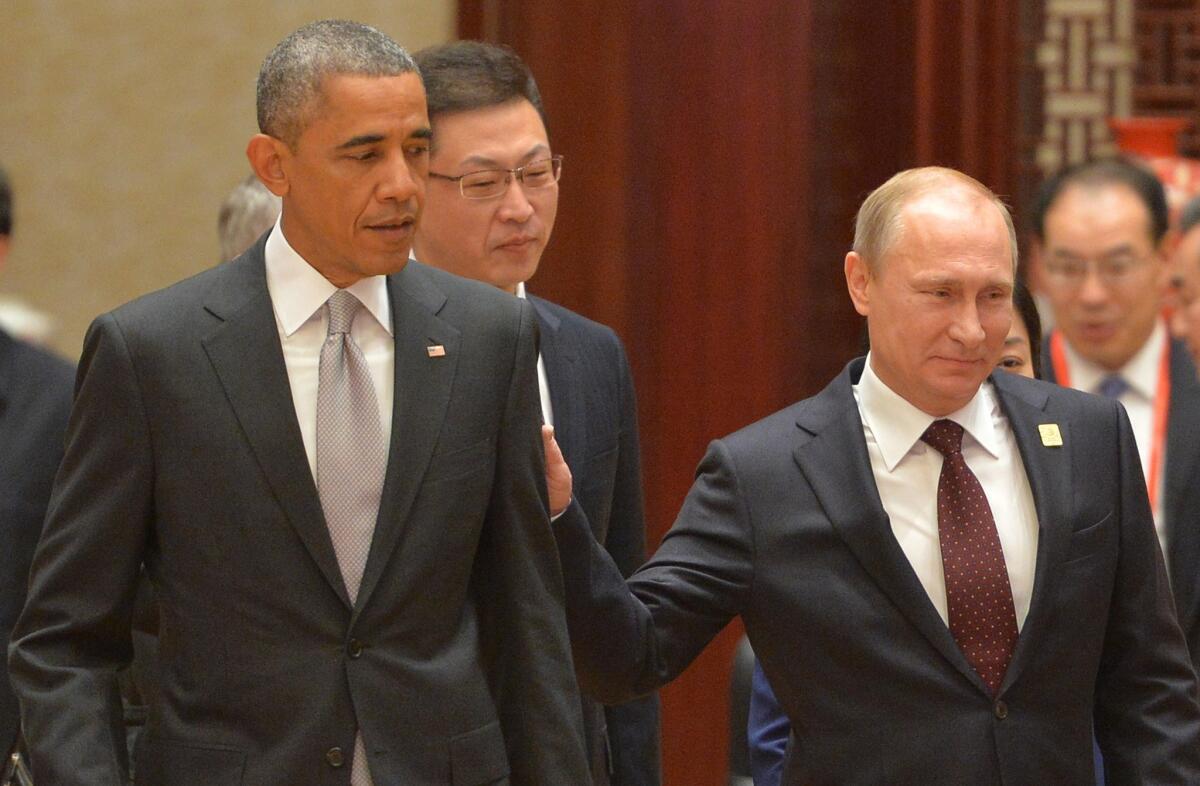Putin the Great, and the collapse of the Russian economy

In certain corners of conservative thought, it’s been fashionable to portray Russian President Vladimir Putin as a master strategist who has outdueled Barack Obama at every turn.
This view reached its zenith this year, in the aftermath of Russia’s takeover of Crimea and the start of its armed intervention in Ukraine. Its epicenter could be found in the Mitt Romney camp, which interpreted events as proof that Romney was right to place Russia at the top of the list of threats to the U.S. during the presidential campaign, and to label Obama as naive.
Those voices haven’t been heard much lately, and with good reason. Putin’s adventure in Ukraine has been an unmitigated diplomatic and economic disaster. In terms of domestic politics, it may be on the verge of undermining his public standing.
Russia expert Anders Aslund has just weighed in with a stark assessment of the state of the Russian economy. He concedes his view is more negative than others’, but not by much. And he’s surely correct in forecasting that things will get much worse before they get better.
Russia has been hit with a “triple whammy,” Aslund observes. First, awful domestic policies, yoking protectionism to crony capitalism: the Putin kleptocracy is in full cry. (See Anne Applebaum in the New York Review of Books and Karen Dawisha’s new book for more on this.) Second, Western sanctions stemming from the Ukraine invasion are biting hard; Russian external debt can’t be refinanced and government reserves, which have been overstated by as much as 100%, are shrinking fast.
That leaves Russia even more unable to deal with Whammy Three: the collapse in oil prices. The ruble exchange rate tracks the price of oil, so the price decline is neutral to the economy in some respects. But not others. Aslund, in a related op-ed: “The big problems are economic growth and the standard of living, which will deteriorate.” The low exchange rate compounded by protectionism will drive inflation, already about 8.5%, even higher, he predicts. These effects are spurring capital flight.
The consensus forecast for Russian growth, which was 2.5% at the beginning of the year, is now zero, Aslund writes. Given the prospect that the three whammies will gather force in 2015, “a prediction of a decline in Russia’s GDP of 1 percent next year sounds optimistic.”
Putin is holding things together at the moment, barely. Last week he delivered a speech to the nation that was both “messianic and defensive,” in the words of the Economist, portraying Russia’s ills as the product of jealousy and animosity from the U.S. But the ills are too real to be hidden from ordinary Russians, who see their living standards falling and are weary of war.
Trust in the government, never strong, is weakening. If the forces of economic decline continue, Putin will have to act -- and some sort of face-saving withdrawal from Ukraine to get the sanctions lifted could be the outcome. It’s not naive to think so.
Keep up to date with the Economy Hub. Follow @hiltzikm on Twitter, see our Facebook page, or email mhiltzik@latimes.com.
More to Read
Inside the business of entertainment
The Wide Shot brings you news, analysis and insights on everything from streaming wars to production — and what it all means for the future.
You may occasionally receive promotional content from the Los Angeles Times.











